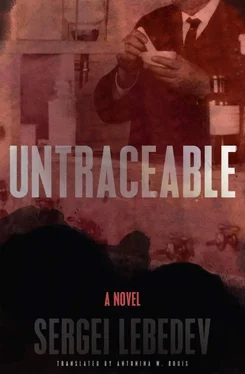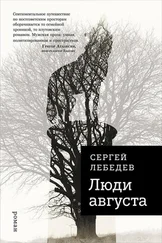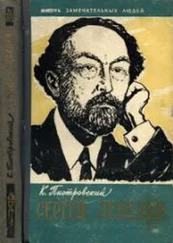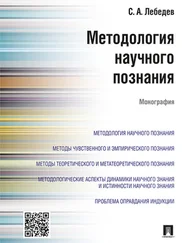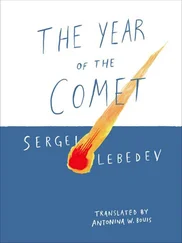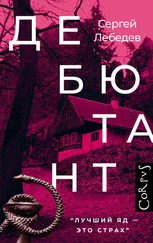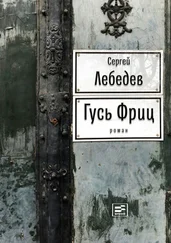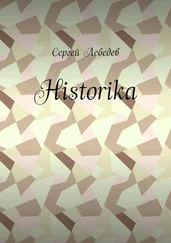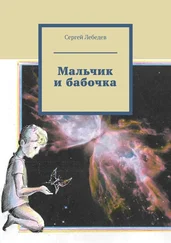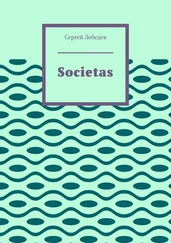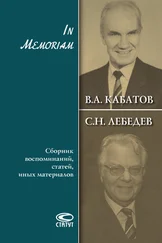Сергей Лебедев - Untraceable
Здесь есть возможность читать онлайн «Сергей Лебедев - Untraceable» весь текст электронной книги совершенно бесплатно (целиком полную версию без сокращений). В некоторых случаях можно слушать аудио, скачать через торрент в формате fb2 и присутствует краткое содержание. Город: New York, Год выпуска: 2021, ISBN: 2021, Издательство: New Vessel Press, Жанр: Современная проза, на английском языке. Описание произведения, (предисловие) а так же отзывы посетителей доступны на портале библиотеки ЛибКат.
- Название:Untraceable
- Автор:
- Издательство:New Vessel Press
- Жанр:
- Год:2021
- Город:New York
- ISBN:978-1-939931-90-0
- Рейтинг книги:3 / 5. Голосов: 1
-
Избранное:Добавить в избранное
- Отзывы:
-
Ваша оценка:
- 60
- 1
- 2
- 3
- 4
- 5
Untraceable: краткое содержание, описание и аннотация
Предлагаем к чтению аннотацию, описание, краткое содержание или предисловие (зависит от того, что написал сам автор книги «Untraceable»). Если вы не нашли необходимую информацию о книге — напишите в комментариях, мы постараемся отыскать её.
Untraceable — читать онлайн бесплатно полную книгу (весь текст) целиком
Ниже представлен текст книги, разбитый по страницам. Система сохранения места последней прочитанной страницы, позволяет с удобством читать онлайн бесплатно книгу «Untraceable», без необходимости каждый раз заново искать на чём Вы остановились. Поставьте закладку, и сможете в любой момент перейти на страницу, на которой закончили чтение.
Интервал:
Закладка:
But the gods immediately hid him in dark confinement, until someone released him. He dissipated, dissolved, got lost among dead smells cut off from their source, among yesterday’s shadows. But he did not vanish fully, because he was inherently alien to the world and it could not accept and dissolve him completely.
Then the gods called him again. He revived from dispersal and was filled to the brim with himself; like a raindrop plummeting to earth, he raced toward the distant call.
He flew above the river. The end of his journey was near. In the middle of the waters rose the enormous, the great Island, with searchlights running like lunar fingers through the dark. Fish leaped out of the water, dropping sparkles from their scales. Myriad animal eyes glowed in the dark of the forest and fields. The river retreated into its depths, revealing the Island’s foundation cliffs, covered in waterweeds. He slid down, growing smaller, thickening; flowed in a stream down the chimney, penetrated bars and filters, and then dove into the light from the lamp, the sun of the lab. In its encircling glow, he drew himself into the desired, soothing cradle, the narrow opening of a test tube. He filled it and lay still.
The journey is done. He is home.
Kalitin woke up. His hand was on the neck of the cognac bottle. His head was foggy, even though he had not drunk a lot. The last coals were burning down. He added logs and fanned the flames. He rarely remembered his dreams in detail, only the ones that literally reflected reality. Now he remembered only remnants of the breeze over vast spaces, a faint trail leading to the Island.
Daydreams about the Island were his favorite emotional sustenance. The Island was his true birthplace. Recalling it, a place of strength and power, brought Kalitin a dull, sated drowsiness, as if these weren’t incorporeal images but real food, rich, harmful, but satisfyingly delicious, like the boar hams served at the restaurant outside town by the old water mill.
Kalitin worried that one day the daydreams would stop nourishing him, reanimating him, encouraging him. They would just be memories, tasteless, useless, a burden. He tried to limit himself. After all, he had managed to quit smoking on doctor’s orders and now only drank moderately!
But now, after his diagnosis, there was no point in postponing or hoarding the pleasure. He intended to take his tested remedy, have a feast, overindulging in the Island, the things that had given him a powerful, narcotic sense of immortality within the limits of life and beyond them, to stifle the banal, flat sense of death, to gain at least a week, a day, to awaken his strength so that he could reverse his fate and affirm hope for salvation.
Kalitin poured more cognac. He prepared to remember. In the flicker of the flames, embroidered with the golden stitches of sparks, he saw the blushing gelatinous surface of the river at sunset. In the dark spots between the tongues of fire, the secret part, the hidden second nature, he recognized the duality of his gift.
He drank, taking delight in himself remembering, creating a symphony, a mystical cosmogony of the Island, which had predetermined their connection, their preordained dependence on each other.
The Island’s history began long ago. The mighty river destroyed the limestone ridge in its way. Inside it were hidden fossilized growths of coral; lily blooms on articulated stems, falling apart into rings; brachiopods like lacquer powder compacts. The river had washed away the limestone, leaving only one hill of the ridge that did not give in to the water surrounding it. Trees grew there, animals moved into the stone dens, and birds wove nests in the overhangs and slopes.
The very first people to find the Island avoided living there, even though it had convenient, deep caves. Located in the middle of turbulent waters, isolated, closed, menacing—it was only during the greatest droughts, which occurred every ten years or so, that there was a narrow path to it—the Island had been created by nature as a place for solitude, otherworldly, for meeting higher powers.
People built temples on the Island. It had seen tubby stone gods of the Paleolithic, gods of clay and of bone, carved wooden statues.
Then came monks forcibly baptizing local tribes. They dug out and burned wooden idols that did not have the strength to protect themselves and the faith.
The monks chopped down the sacred tree, the only oak on the Island, old, crooked, its roots deep in the yellow stone, and in its place built a chapel. They burned the former gods of linden and ash and threw the coals into the water. They could not break or move the ancient altar stone, washed in blood, a granite boulder alien to the region, which had been brought by unknown people to the Island from the north—by unknown means: barge, sledge over the ice; so it lay in the middle of the Island, like a dead but imperishable god.
The chapel was the start of the fortress monastery that defended the edge of the state from nomads, guarded the natural border that divided forest from steppe; many fervent prayers rose beneath its vaulted ceiling for the government and troops. Then the steppe was conquered, although it exploded with wild rebellions more than once.
The monastery expanded, built from the stone on which it stood. Above soared churches, belfries, chambers, walls, towers. Below, the paths of the quarry multiplied, descending ever deeper, turning into cellars, cells, storerooms, and crypts with the relics of the deceased recluses who had given the monastery its fame.
Also there, in the deepest reaches of the lower Island, where there was only the slow time of stone, forcibly tonsured prisoners lived and died, exiled, stripped of all secular disguises, former names, actions, and destinies. They knew only years—in spring the high river water seeped into the cells; the stone bore their notches; blind writing snaked along the walls in a chronicle of darkness, despair, faith. The upper, reigning Island founded its growing strength on them, the nameless men buried alive; it grew on the slow, meager, angry yeast of their suffering.
Then the lower levels were emptied. The former cells collapsed, burying the past. Prisoners were kept in the casemate above, built on the headland back in the days when ships plied the river under sail and robber gangs caroused on vessels propelled by oars.
The Island was no longer on the frontier of the empire, which had pushed back its borders to the seas and oceans, conquering many languages. These languages were heard in the prison cells—the languages of rebels, languages of freedom, now accompanied by the clanging of shackles.
They buried the prisoners on the headland. Limestone crosses of a different ritual, names in a different alphabet. The frosts, rains, and fogs ate away the stone, erasing letters and numbers. Scratched lines remained on the cell walls: poets’ verses, scientists’ blueprints, officers’ vows.
By then the river was traveled by grain barges and paddle steamboats carrying passengers with a colorful sprinkling of hats and umbrellas.
The monastery was getting fat on the relics of its saints, on the prayers and money of travelers, peasants, and aristocrats. An icon appeared, allegedly found by monks near the water during a storm. A new church with five golden cupolas, visible for twenty versts along the river, was built for the icon. An artist among the monastery novices, a young talented master who had grown up just in time among the brethren, ornamented it with paints he created, made of substances found only in the region. The painting was not bright. But it was clearly inhabited by the inexplicable mystery of the close interconnection of all existence, divinity and humanity. The monastery fishermen caught sturgeon in nets, the apprentices boiled fish glue that gave the paint a bonding strength, and the image lay on the rough, porous stone as if it were an intrinsic part of it, an expression of what was inside.
Читать дальшеИнтервал:
Закладка:
Похожие книги на «Untraceable»
Представляем Вашему вниманию похожие книги на «Untraceable» списком для выбора. Мы отобрали схожую по названию и смыслу литературу в надежде предоставить читателям больше вариантов отыскать новые, интересные, ещё непрочитанные произведения.
Обсуждение, отзывы о книге «Untraceable» и просто собственные мнения читателей. Оставьте ваши комментарии, напишите, что Вы думаете о произведении, его смысле или главных героях. Укажите что конкретно понравилось, а что нет, и почему Вы так считаете.
